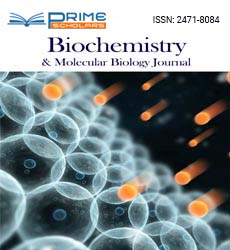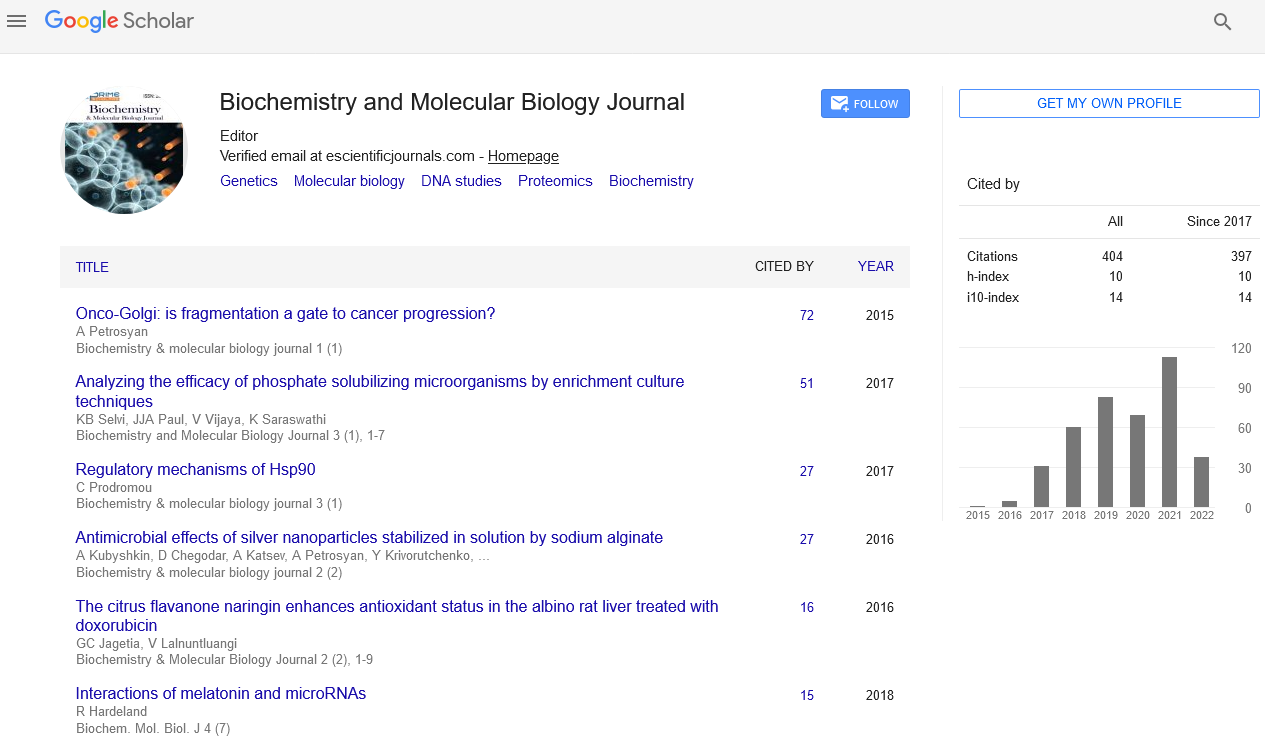Opinion - (2024) Volume 10, Issue 3
Harnessing Cellular Machinery: The Promise of Cell-Free Protein Synthesis
Hei Nen*
Department of Pharmaceutics, University of Alfaisal, Saudi Arabia
*Correspondence:
Hei Nen,
Department of Pharmaceutics, University of Alfaisal,
Saudi Arabia,
Email:
Received: 29-May-2024, Manuscript No. IPBMBJ-24-20966;
Editor assigned: 31-May-2024, Pre QC No. IPBMBJ-24-20966 (PQ);
Reviewed: 14-Jun-2024, QC No. IPBMBJ-24-20966;
Revised: 19-Jun-2024, Manuscript No. IPBMBJ-24-20966 (R);
Published:
26-Jun-2024, DOI: 10.36648/2471-8084-10.03.25
Introduction
Cell-free protein synthesis is a groundbreaking technique that
enables the production of proteins without the need for living
cells. By utilizing the cellular machinery extracted from cells,
CFPS systems can rapidly and efficiently synthesize proteins.
This approach offers numerous advantages over traditional cellbased
methods, including faster production times, the ability
to synthesize toxic or difficult-to-express proteins, and greater
control over the protein synthesis environment. As a result,
CFPS has become a valuable tool in research, biotechnology, and
synthetic biology. One of the primary advantages of CFPS is the
speed at which proteins can be produced. Traditional cell-based
protein expression systems require time-consuming steps such as
cell culture, transformation, and protein extraction.
Description
In contrast, CFPS can produce proteins within a matter of hours,
making it an ideal choice for high-throughput applications and
rapid prototyping. This rapid turnaround is particularly beneficial
in synthetic biology, where iterative cycles of design, build, test,
and learn are crucial. CFPS also provides a controlled environment
that can be precisely manipulated to optimize protein synthesis.
Researchers can adjust the concentrations of various components,
such as nucleotides, amino acids, and cofactors, to enhance yield
and functionality. Additionally, CFPS systems can be supplemented
with chaperones, folding catalysts, and other auxiliary factors to
improve the solubility and activity of synthesized proteins. This
level of control is often challenging to achieve in living cells, where
the cellular environment is more complex and less predictable.
The ability to produce proteins that are toxic or difficult to
express in living cells is another significant advantage of CFPS. In
traditional systems, proteins that interfere with cellular functions
or are prone to degradation can be challenging to produce. CFPS
circumvents these issues by operating in an open system, free from
the regulatory constraints and proteolytic machinery of living cells.
This capability has opened new avenues for producing membrane
proteins, enzymes, and other challenging targets that are critical
for drug discovery, structural biology, and functional studies.
CFPS has been instrumental in advancing the field of synthetic
biology. By enabling the rapid and flexible synthesis of proteins,
CFPS systems allow researchers to test and optimize genetic
circuits, metabolic pathways, and synthetic constructs in a fraction
of the time required by cell-based methods. This acceleration has
led to significant advancements in the design and production of
novel biomolecules, biosensors, and therapeutic proteins. Despite
its many advantages, CFPS also faces several challenges. One of
the primary limitations is the cost associated with the reagents
and components required for protein synthesis. While advances
in the production and stabilization of cell lysates have reduced
costs, CFPS remains more expensive than traditional cell-based
systems, particularly for large-scale production. Additionally, the
efficiency of protein synthesis in CFPS systems can vary depending
on the source of the lysate and the nature of the target protein,
necessitating optimization for each specific application.
Conclusion
In conclusion, cell-free protein synthesis represents a powerful
and versatile approach to protein production that offers
numerous advantages over traditional cell-based methods. Its
rapid turnaround time, controlled synthesis environment, and
ability to produce challenging proteins make it an invaluable tool
in research, biotechnology, and synthetic biology. As technological
advancements continue to address existing challenges, CFPS is
poised to play an increasingly prominent role in the development
of new therapies, diagnostics, and biotechnological applications.
By harnessing the cellular machinery outside the confines of living
cells, CFPS is unlocking new possibilities in the quest to understand
and manipulate the molecular machinery of life.
Citation: Nen H (2024) Harnessing Cellular Machinery: The Promise of Cell-free Protein Synthesis. Biochem Mol Biol J. 10:25.
Copyright: ©2024 Nen H. This is an open-access article distributed under the terms of the Creative Commons Attribution License, which permits unrestricted use, distribution, and reproduction in any medium, provided the original author and source are credited.

